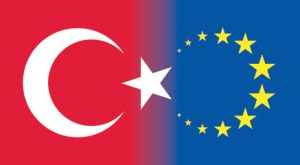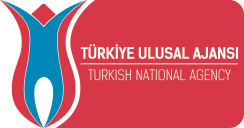New Approaches in Inspection: A Polycentric Model
As education systems that change and develop in direct proportion to the requirements of the age, the field of education management and audit, which gives direction to it, is also in structure constantly changing and evolving. Basic policy documents, such as European 2020 Education Strategy and the Education 2023 Vision, support this change and development. With its population of more than 500 million, the EU is among the world’s attractions in education and innovation. The EU encourages member states and EU Erasmus + program member countries to cooperate in education. Considering basic principles such as innovation, transparency in education, cooperation of institutions will contribute to the development of capacity of each.

On the basis of this project application, the polycentric audit approach that we intend to develop, has been developed by our Dutch, Bulgarian and N. Irish partners. As a result of our literature survey and research in the field of education audit system, we have determined that polycentric audit has just begun to be applied and that it can be developed as a good model. This project, which will allow each partner to improve its institutional capacity, is also based on the fact that the needs of each project partner in the field of education audit and management related to the polycentric audit approach.
First of all, each partner will be able to improve their institutional capacities compared to their current situation through this project. At the same time, institutions of different types and capacities in different countries of Europe will develop a high-level relationship in the European dimension. This application, which is based on the polycentric audit approach and its comparison with the existing control systems in other countries, is based on the active cooperation and communication of inspectors, academicians, education managers, school heads, teachers and parents in different areas of education audit and management. In this respect, it also enables the development of human resources. Thus, the change of good practices has also taken priority about subject of institutional development and capacity building, which is the main philosophy of the project.
During our project; four TPMs have been planned in order to discuss the administrative, financial, bureaucratic functioning of the project, the efficiency of team work, project schedule and products etc. Legal representative on behalf of each partner and people responsible for the communication of the project with a person assigned by them will participate in these TPMs planned. Meetings to be held at the beginning, and at the end of the each project year, will serve to sub-objectives in the secondary sense, such as visibility, dissemination and awareness.
Three LTT activities were planned during the project period. The aim of these planned LTT activities is also to educate personnel who will use the application to be changed by training human resources in good practice change. With these activities, which aim to know-how, expert personnel of the partners who will be trained will analyze the application to be provided for exchange within legislation and will review in the academic context and ensure its adaptation by piloting the application. The persons participating in these activities have been determined in proportion to their contribution which they will provide to the capacity, project products and activities of the partner institutions. The academic staff of the partner universities will carry out the task of teaching in LTT activities. These LTT activities, which will be based on different methods and techniques such as face-to-face training, panel, forum, observation, case study, predict the active participation of the participants. At the end of the project, the website, the database platform, reports which are named “Polycentric Audit Approach”, “Implementation of Polycentric Audit Approach in Different Countries”, “The Role of Inspection Stakeholders in The Polycentric Audit Approach and Indicators Used “, “Comparison of Polycentric Audit System with Education Management and Audit in Portugal” and “Comparison of Education Management and Audit with Polycentric Audit System in Turkey” will be prepared.
These reports in question will be carefully designed in legislation and academically. The reports to be formed, will also be among the concrete outputs of the project. Considering the partnership structure, this project encourages collaboration among academics, inspectors, education managers, school principals, teachers and parents. The partnership structure allows all partner institutions to act actively both horizontally and vertically. The project is expected to improve the capacities of institutions in the short, medium and long term. Basic policy documents such as the EU 2020 Education Strategy and Education 2023 Vision are also elements that will contribute to the impact area of the project.


